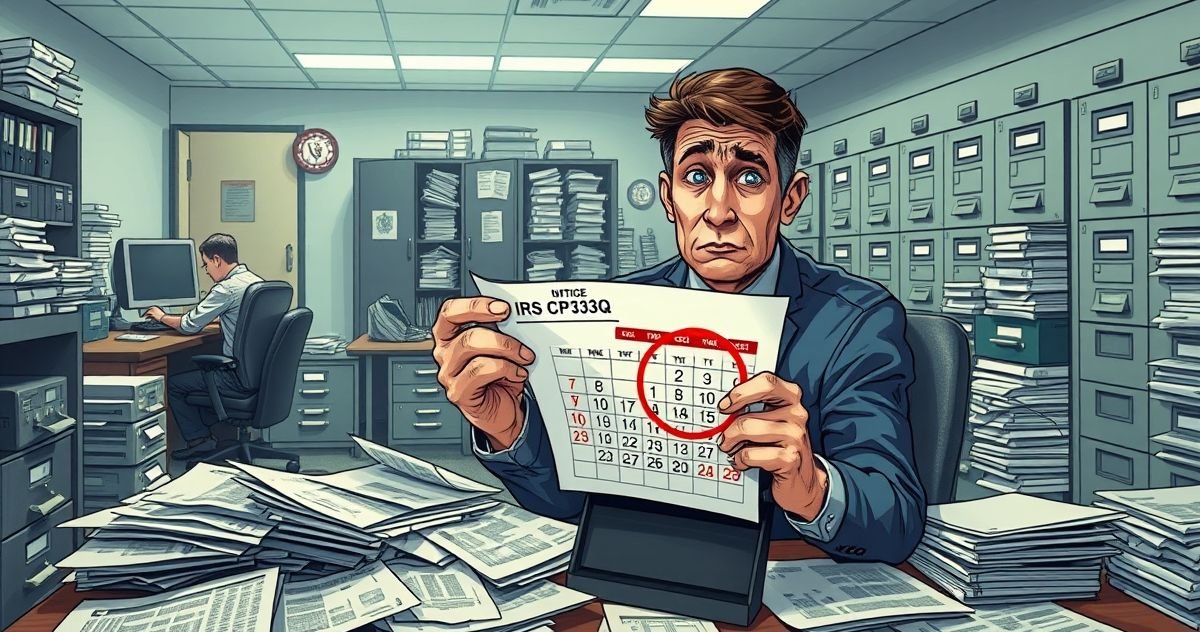Understanding the CP523Q Notice
The Internal Revenue Service (IRS) CP523Q Notice is a formal document that informs taxpayers of specific issues related to their tax filings or payments that must be addressed promptly to maintain compliance with federal tax laws. It crucially serves as a reminder of unresolved tax issues, offering essential information about taxpayers’ financial obligations regarding their tax accounts.
Primary Purpose of the CP523Q Notice
The CP523Q Notice acts as a communication tool for the IRS to inform taxpayers of imminent actions regarding their tax liabilities. The primary purpose of this notice is to alert taxpayers of necessary payments due, specify the amount required, and provide a timeline for compliance to prevent further penalties.
Key Features of the CP523Q Notice
- Details of Amount Due: The notice specifies the remaining balance of tax, penalties, or interest that needs to be settled to avoid further action from the IRS.
- Payment Instructions: The IRS includes detailed instructions on how taxpayers could make their payments, such as electronic ways, mailing checks, or exploring installment payment options.
- Deadline for Compliance: A clear deadline is usually indicated, by which time the taxpayer needs to pay the amount due to avert additional fines or further collection activities.
- Consequences of Non-Compliance: The notice outlines potential repercussions if the taxpayer fails to address the liabilities timely, such as additional penalties, interest, or even enforced collection actions like federal tax liens or levies.
- Contact Information: A section detailing how the taxpayer can contact the IRS for further information or clarification about their notice, to potentially dispute or negotiate payment options.
Relevant Filing or Compliance Requirements
When a taxpayer receives the CP523Q Notice, it is critical that they thoroughly understand the filing or payment requirements detailed within. Typically, taxpayers must:
- Review the notice to ensure its accuracy and confirm that all liability calculations are correct.
- Assess their capacity to make payments by the indicated deadline and evaluate payment options provided by the IRS.
- Consider seeking professional tax advice if clarification or dispute resolution is necessary.
- File any additional documents or evidence if inconsistencies or errors are seen in the notice.
Penalties or Consequences for Non-Compliance
Failing to comply with the CP523Q Notice can lead to escalating consequences:
- Additional Penalties: If the taxpayer does not pay the due amount by the deadline, additional penalties and interest may be applied, significantly increasing the total debt owed to the IRS.
- Enforced Collection Actions: The IRS may initiate various collection activities. These could include wage garnishments, bank levies, or federal tax liens which can severely impact a taxpayer’s financial standing.
- Credit Score Impact: Owing back taxes can also negatively affect a taxpayer’s credit score, potentially limiting credit access in the future.
Importance of the CP523Q Notice
The CP523Q Notice is pivotal in ensuring that taxpayers understand and act upon their tax obligations in a timely manner. By adhering to the instructions and addressing the payments due, taxpayers can:
- Maintain Financial Compliance: Ensuring compliance can prevent a cascading effect of financial consequences, maintain good standing with the IRS, and improve overall financial health.
- Avert Further Legal Complications: Active response to the notice helps in preventing legal complications that could arise from enforced actions by the IRS.
- Opportunity for Negotiation: Responding timely potentially opens negotiation pathways for taxpayers, such as installment agreements, where they can pay over time rather than facing immediate full balance payment demands.
Overall, addressing a CP523Q Notice should be seen as an urgent priority for taxpayers. Understanding this notice helps taxpayers engage proactively with the IRS to resolve potential issues in a constructive manner, promoting fiscal responsibility and adherence to tax legislations.



